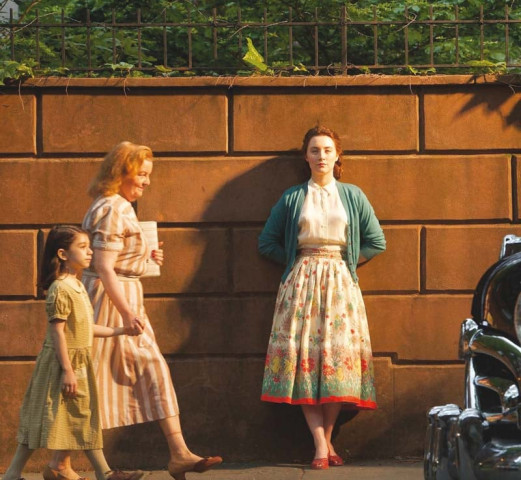Film review: Brooklyn - The home front
Brooklyn yanks hard on the heartstrings by beautifully narrating an immigrant’s experience

Brooklyn yanks hard on the heartstrings by beautifully narrating an immigrant’s experience.
The moment takes place in the life of the heroine of Brooklyn towards the end of the film, when she is forced to choose between her past and her future. This is a remarkable scene — powerful, potent and resonant — in a remarkable film. An austere and unadorned adaptation of Colm Tóibín’s 2009 novel, Brooklyn is one of the finest films of the year.
Brooklyn owes its greatness, almost entirely, to the masterful work of five individuals: actor Saoirse Ronan who brings her character alive with a luminous performance; director John Crowley who directs with great skill and precision; writer Nick Hornby who captures the emotional essence of the novel with a trimmed but faithful adaptation; production designer François Séguin who creates a sense of time and period with seemingly effortless accuracy; and casting director Fiona Weir who assembles a perfect ensemble of actors. Romantic, intelligent and engaging, it is a film that explores the sadness and happiness, the sentimentalism and pragmatism and the truth and falsehoods of a life torn between two countries. And, while it has its sad moments, Brooklyn is sublimely inspiring and heartwarming.
Eilis Lacey (Saoirse Ronan), an Irish girl in her early 20s, lives with her mother, Mary Lacey (Jane Brennan), and sister, Rose Lacey (Fiona Glascott), in the town of Enniscorthy, Ireland, circa 1951. She works a couple of days a week for local grocer Miss Kelly (Brid Brennan), a woman full of spite. Eilis’ prospects of finding employment, love and education at home are gloomy. Rose arranges for Eilis to migrate to America. A kind priest, Father Flood (Jim Broadbent), arranges boarding-house accommodation, a job as a salesgirl at the swanky Bartocci’s department store and evening classes in a local college for Eilis in the titular town of Brooklyn. Here, Eilis is surrounded by a number of well-meaning, if quirky, characters: landlady Madge Kehoe (Julie Walters), a strict disciplinarian with a caustic tongue; a few catty housemates, alternately helpful and envious; and supervisor, Miss Fortini (Jessica Paré), exacting but kind and compassionate. Eilis is homesick and lonely in America. Life changes, when she meets Antonio Fiorello (Emory Cohen), a winsome Italian plumber, at a church dance. The two fall in love over the course of just a few meetings. With Antonio by her side, life takes a decidedly positive turn for Eilis. The two marry each other before Ellis embarks on a trip back to Ireland. Once back in Enniscorthy, she attracts the attention of the eligible Jim Farrell (Domhnall Gleeson) and discovers that she is now able to take care of her aging mother and hold a good job in Enniscorthy. Confounded by the affections of two men, and her love for two countries, Eilis is soon forced to decide between a life in Ireland and one in America.
Saoirse Ronan’s performance — low-key, understated and precise — is powerful and moving. She makes her transformation from a demure young girl to a confident young lady. When confronted with love, she depicts feelings of amazement, confusion and uncertainty with the skills of a master thespian. She employs the minutest touches — a wrinkle on the forehead, a twitching of the lips, a stiffening of the face — to convey the most profound of emotions. Changes in gait, posture, diction and style are used to show changes that take place in her person during the course of the film. No words are used to communicate the emotional turmoil she experiences; only expressions.
Subtlety is, perhaps, the greatest strength of Brooklyn. It demonstrates how restraint, discipline and delicacy can be used effectively to tell deeply moving and passionate tales. Often, less is more. In the case of Brooklyn, it is a whole lot more!

Published in The Express Tribune, Sunday Magazine, December 20th, 2015.



















COMMENTS
Comments are moderated and generally will be posted if they are on-topic and not abusive.
For more information, please see our Comments FAQ